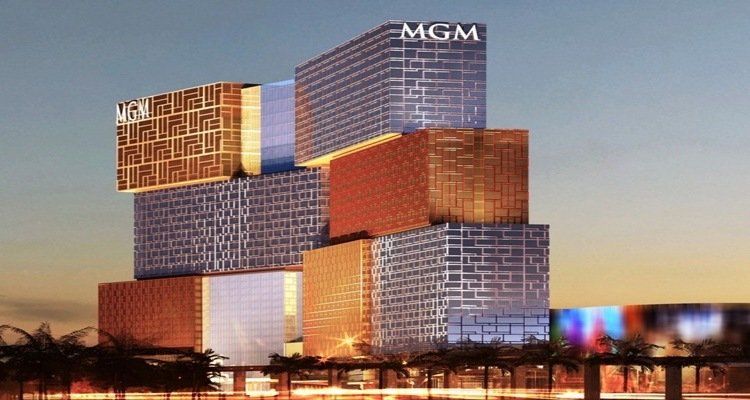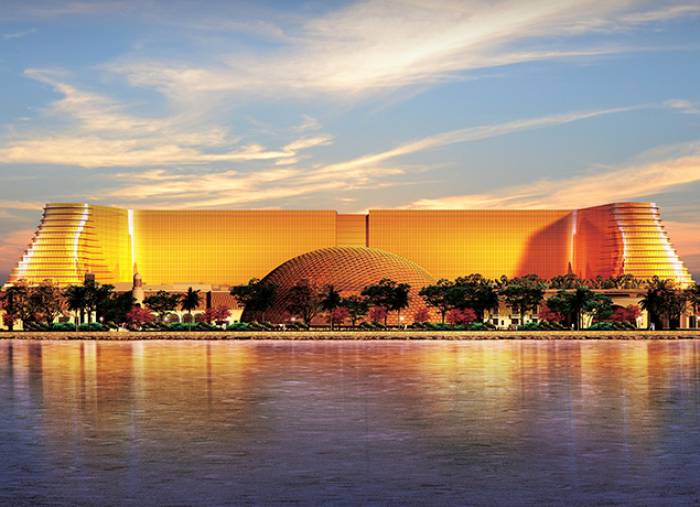Casino Talk: MGM Cotai opens in time for Chinese New Year; Philippine Government puts a hold new casino licenses - SOMUCHPOKER
The Macau casino beat is red hot these days with the Chinese New Year celebrations at hand. At the Macau Cotai Strip, the family-oriented entertainment sector, all rooms have been booked in anticipation of this holiday season. Joining the party is MGM Cotai, the newest property to open up in the area.
While Macau is enjoying the coming of the Year of the Dog, in the Philippines, the casino beat is headed for a hiatus. The country recently issued a nationwide ban on new licenses for land-based casinos due to oversupply.
MGM Cotai opens in time for Chinese New Year

Look outside the window of any hotel on Macau’s Cotai Strip and something you can’t miss is the mass construction taking place. The area has been in development since Y2K with the first casino coming up on 2006. Two days, ago, the MGM Cotai became the newest player on the strip, launching just in time for Chinese New Year.
MGM Cotai is the second MGM Resorts International property to open in Asia’s gambling mecca with MGM Macau in operation since 2007 at the downtown district. Initially, MGM Cotai intended to open doors on 2016 however setbacks pushed the deadline back nearly two years. The grand opening finally took place two days ago, February 13, capitalizing on the 11-day holiday season that begins today. In an article by Bloomberg Markets,
“It’s a perfect time to open right at the eve of the Year of the Dog,” MGM Chief Executive Officer James Murren said in an interview in Tokyo last week, referring to the Chinese zodiac animal that marks this year. “I believe we have created a resort that exactly targets the market that’s the fastest growing today — the upper-end mass market.”
The US$3.4 Billion property is now open however only 500 or so standard rooms out of the 1,400 rooms and suites are available. With high demand for the holidays, these were easily snatched up. For casino goers, the casino floor will be operational with over 900 slot machines and 177 mass-market gaming tables. 25 more new-to-market tables are expected next year. As for VIP gaming, that is due for the subsequent phases.
Philippine government puts a hold new casino licenses

At the International Casino Exhibition last week, Andrea Domingo, Chair of the Philippine Amusement and Gaming Corporation (PAGCOR) – the Philippine government body that issues casino licenses as one of its mandates – stated that as of January 13 land-based casino license applications were no longer being accepted. The ban was imposed to curb the rapid increase of casinos in the country and allow for the current market to mature.
Domingo stated, “the President told me on January 11 to freeze the processing of new casinos because there are just too many now.”
However the move was not exactly a big surprise. Philippine President Rodrigo Duterte had voiced out his concerns last year regarding the proliferation of casinos. As an action man, it was only a matter of time before a ban on new licenses would be ordered. One of the contributing factors was a plea by the established casinos in Metro Manila. At the ASEAN Gaming Summit in March 2017, Domingo stated,
“In the Manila area, we listened to our investors. They gave us a position paper to give breathing space for the market to mature in the National Capital Region, so we listened.”
Understanding the risks taken by the early casino investors, this immediately resulted in a 5 year moratorium on issuing licenses to new casinos in Metro Manila. The nationwide ban soon followed.
There are currently three major casinos operating in the Entertainment City complex – the prime reclaimed land by Manila Bay -, Solaire Resort and Casino, City of Dreams Manila, and Okada Manila. Bayshore City Resorts World has been approved for some time but has yet to break ground. The first integrated resort and casino of the country is Resorts World Manila located in Newport City.
In addition to the giants, eight new casinos have been approved in Clark, Pampanga; three new licenses for Cebu, and one in Boracay. All of these locations are equipped with an international airport and according to Domingo, should be given a time-frame to ripen before more are allowed entry into the market.
Article By Triccia David



















